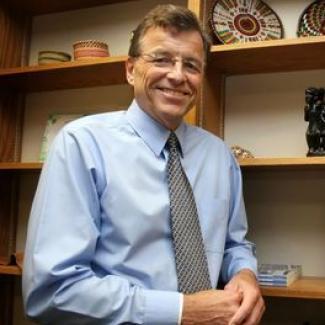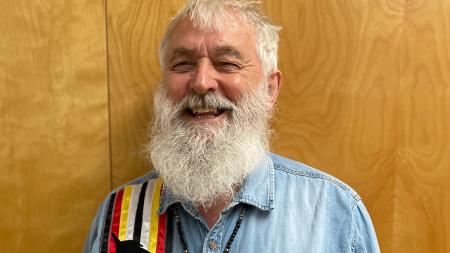CRC Classes Implementing Deacon Changes

Andrew Ryskamp
In a historic move, Synod 2015 created a new vision that involves deacons “serving as the leading edge in community transformation at both the local and regional levels as they address issues of justice and mercy,” said Andrew Ryskamp.
And a significant part of this vision, he said, allows deacons to be seated at classes and synod in parity with the office of minister and elder.
“While some classes are taking it step by step, most classes are following the mandate of synod and proceeding to fully implement the decision with the seating of deacons,” said Ryskamp,who retired last year as director of World Renew U.S and is helping the Christian Reformed Church implement synod’s decision.
While most classes won’t be meeting until later this month or in early March, Ryskamp is aware of at least one classis that has already met and appointed a deacon to serve as a delegate at synod.
“I’m tremendously encouraged by what I’ve seen so far,” said Ryskamp. “The diaconal leaders across Canada and the U.S. are working hard to make these changes a reality.”
In recent weeks, Ryskamp has attended meetings of various classes to discuss the changes and answer questions about the decision made by Synod 2015. He will continue to support classes, churches and diaconal networks as they implement the changes.
The CRC has worked for many years to expand the role of deacons, which is a concept Ryskamp has strongly supported both as Director of World Renew-U.S., and before that when he served as Director of Diaconal Ministries, also with World Renew, said Ryskamp.
“There has long been a desire on the part of the church for deacons to be in parity with other offices of the church, with elders and pastors,” he said, referring to significant reports in the CRC archives. Click here in Synodical Resources to find synodical reports regarding the office of deacons.
Synod 2015 changed the Church Order in several places to reflect the changes in the role of deacons. Also as the result of synod’s decision, classes are asked to reconsider the role they play, moving from being groups that tend to mostly handle the ecclesiastical business of the church to seeking ways to develop regional programs and ministries in concert with other congregations, said Ryskamp.
The CRC has supported strong diaconal ministry for many years. At the local church level, the CRC is known for its care of members that are hurting economically, writes Steven Timmermans, executive director of the CRC, in a letter to pastors and church councils.
“Many refugees have been resettled with diaconal oversight, and many community ministries have either been started or well-supported with church volunteers and finances,” he says.
At Synod 2016, deacons will have the opportunity to look at their role within the context of synod. “They will ensure that the work of mercy and justice at the local, national, and international levels is not only a valid expression of their vision for the church, but that this expression of justice and mercy ministry is also well connected to the churches, and supported by them,” writes Timmermans.
For a sample of what this new mandate and structure could look like, check this Job Description for Deacons at the Local Church Level, as well as this resource for Diaconal Ministry at the Classis Level.
“They are meant to get healthy discussion going, and are not intended as exhaustive resources,” writes Timmermans. ‘Lots of resources have been developed over the years that can help facilitate this discussion and any transition that comes from it. Start the conversation at your diaconate, and ask your classis to do so at that level.”
In addition, he said, The Network is a good place to start in getting more information: http://www.crcna.org/network.
Contact Ryskamp at andrewryskamp@crcna.org with what has worked in your church or classis, or if you would like more information, said Timmermans.


